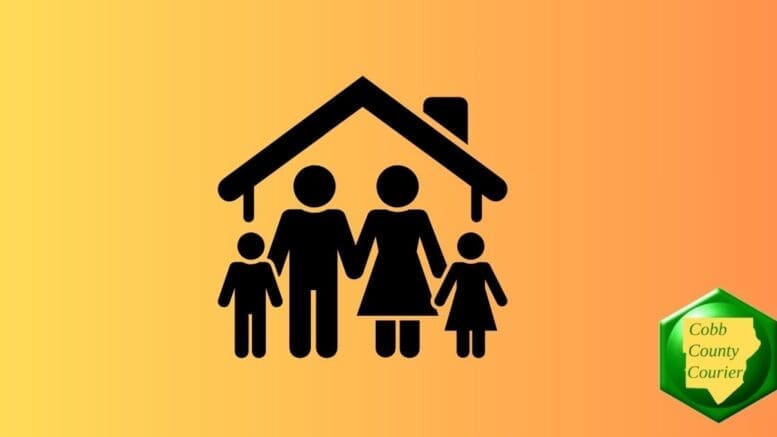By John A. Tures, Professor of Political Science, LaGrange College
Every semester, I ask our national and state representatives if my students and I can research a relatively nonpartisan topic to hone their research methods skills. When GOP State Senator Matt Brass told me about his State Senate Subcommittee on Homeowners Associations, I jumped at the chance. Though my students already had assigned topics for other local politicians, I decided to take this one on personally, and this is what I discovered.
Before I moved to Georgia in 2001, I lived in a community governed by an HOA, or something like it, in Northern Virginia. I admit that it was stunning to live there, as their list of do’s and don’ts was perhaps longer than the rules I had to live in a college dorm. Before that, we rented a house with a type of HOA in Delaware, with dues going to things like having a snowplow clear the streets. We loved the idea until we discovered that the plow happened to pile all of the snow from the neighborhood streets outside our driveway. It took almost a day to dig out enough room for one of our cars to get out. My wife called the icy mountain before our driveway “the Fortress of Solitude,” a nod to Superman’s North Pole hideaway. Despite the frosty reception that morning, I still could see the benefits of an HOA, and the value of community governance. As Senator Brass has noted “Not all HOAs are bad…but there are some bad actors out there.”
I brought three students to one of Senator Brass’ Senate Subcommittee hearings last month. Though it’s off-season for the Georgia Capitol, the huge room was packed with angry homeowners and their tales of surveillance, restrictive rules, and the sudden emergence of a spike in dues to cover long overdue repairs. They talked about battles over representation on the HOA Boards. Democratic member Rep. Donzella James demanded answers and accountability, showing the bipartisan nature of the process, as Dems and Reps united to support their homeowners. Those supporting HOAs touted their positive elements and did their best to answer the critics’ charges. When she learned I was conducting some research, 11Alive’s Rebecca Lindstrom pressed me for details. She’s taken on the HOA issue with a passion, as you can read here.
Some of the experts presented possible solutions. Vice President of Government Affairs at Associa, John Krueger, talked about how many state and local authorities refused to get into battles between their homeowners and Homeowner Associations. We heard about State Attorney Generals and Offices of Real Estate telling homeowners to use the court system for redress, something that seemed like an expensive and lengthy process and perhaps a confusing one as well.
A speaker at the Senate Subcommittee pointed out that some states had an Ombudsman Office, or something like it, that could shepherd the homeowner through the cumbersome legal system. Would these offices make a difference? I decided to conduct some preliminary research.
Among the seven states (Colorado, Delaware, Florida, Illinois, Nevada, South Carolina and Virginia) with one of these Ombudsmen, you are far more likely to find HOAs thriving in that state. A state with an Ombudsman-style office has an average rate of 31.6 percent of homes under an HOA, compared to the other 43 states, the average rate of homeowners with an HOA is 18.27 percent, and that is a significant difference (t = 3.48, p<.001).
Do such states with an Ombudsman have lower HOA fees? It was hard to get this data, as several sites provide incomplete information about states. Some list fees, but do it by city, which isn’t as helpful. From the 19 states where I could find such information, the four with an Ombudsman-type office have average monthly dues of $361.5 compared to the other 15 provided, which had monthly fees of $376.73, a difference but not a significant one (t = 0.33, p > .10). We still need more data.
I also wondered about the homeowner facing the daunting task of having to go to their state’s courts to get some kind of relief. Thankfully, the National Center for Access to Justice provides what’s known as the Justice Index, which compiles several measures of accessibility. States without an Ombudsperson or Ombudsperson-adjacent program have an average Justice Index score of 37.79. That’s compared to states with one of those assisting offices, which average a Justice Index score of 34.27. Though not a significant difference (t = 0.63, p>.10), this shows that the states that created an Ombudsman probably had a good reason for doing so. In those states, the court system is more likely to have some barriers to ease of access, and the Ombudsperson can probably help homeowners with that.
My research shows that we badly need more data to address the issues involving HOAs. There are CAI national surveys about how much someone likes their HOA (and many do), but I can’t find any for state or local levels that would allow some sort of comparison to take place. We not only could use the dues data, but it would help to know something about the burden of those fees, like the percentage of one’s home value or payments that go to paying dues. However, my preliminary findings show some positive value in these Ombudsperson Offices, something that could help bridge disputes between the homeowner and HOA that go into the legal system.
John A. Tures is a professor of political science at LaGrange College in LaGrange, Georgia. His views are his own. He can be reached at jtures@lagrange.edu. His “X” account is JohnTures2.
